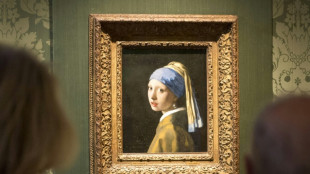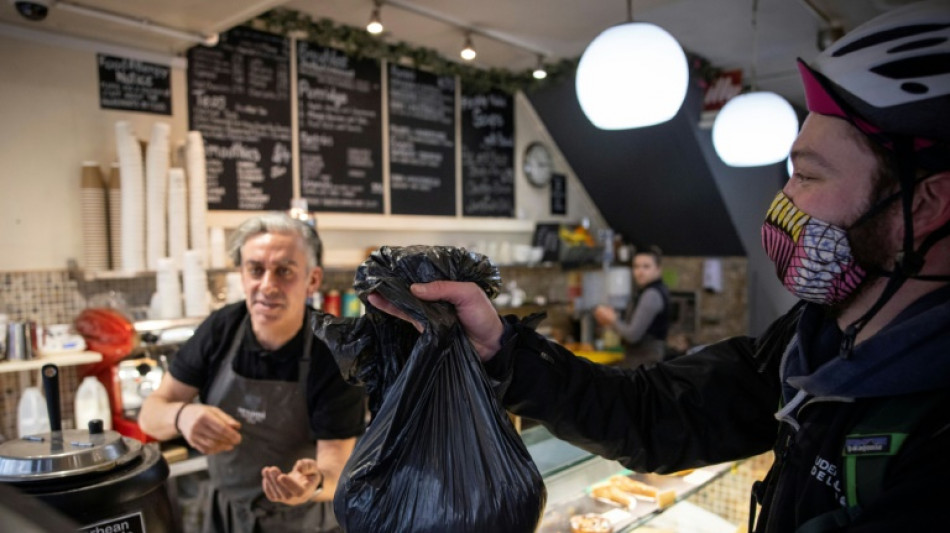
-
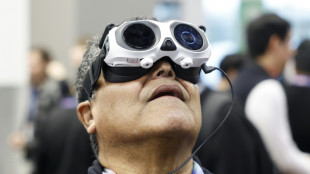 AI gobbling up memory chips essential to gadget makers
AI gobbling up memory chips essential to gadget makers
-
'One Battle After Another' leads the charge for Golden Globes
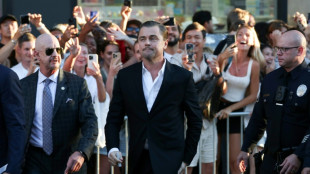
-
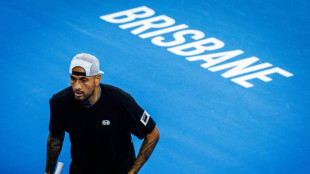 Kyrgios to play doubles only at Australian Open
Kyrgios to play doubles only at Australian Open
-
Firefighters warn of 'hectic' Australian bushfires

-
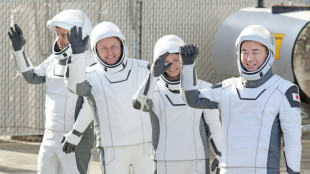 International Space Station crew to return early after astronaut medical issue
International Space Station crew to return early after astronaut medical issue
-
Arsenal in 'strong position' despite missed opportunity for Arteta
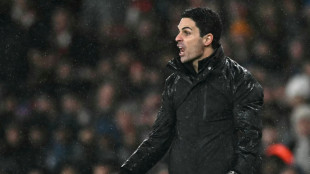
-
 US House revolt advances Obamacare subsidy extension
US House revolt advances Obamacare subsidy extension
-
Swiss mining giant Glencore in merger talks with Rio Tinto
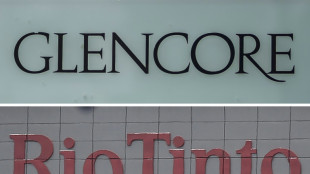
-
 US snowboard star Kim dislocates shoulder ahead of Olympic three-peat bid
US snowboard star Kim dislocates shoulder ahead of Olympic three-peat bid
-
Brazil's Lula vetoes bill reducing Bolsonaro's sentence

-
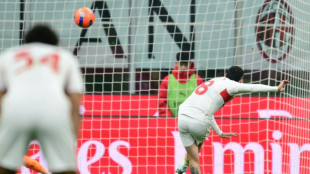 AC Milan scrape a point with Genoa after late penalty howler
AC Milan scrape a point with Genoa after late penalty howler
-
Arsenal miss chance to stretch lead in Liverpool stalemate

-
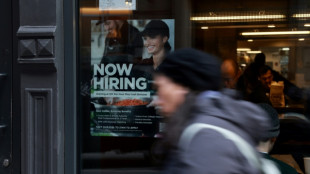 Stocks mixed as traders await US jobs data, oil rebounds
Stocks mixed as traders await US jobs data, oil rebounds
-
After Minneapolis shooting, AI fabrications of victim and shooter
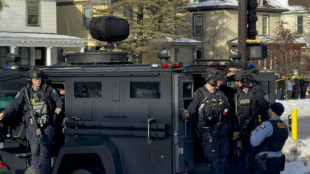
-
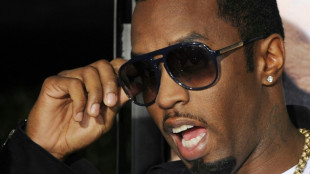 Trump says no pardon for Sean 'Diddy' Combs
Trump says no pardon for Sean 'Diddy' Combs
-
Venezuela begins 'large' prisoner release amid US pressure
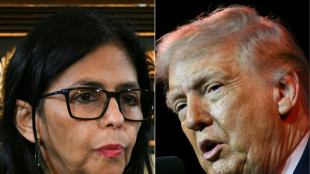
-
 Real Madrid beat Atletico to set up Clasico Spanish Super Cup final
Real Madrid beat Atletico to set up Clasico Spanish Super Cup final
-
Heavy wind, rain, snow batters Europe

-
 PSG beat Marseille on penalties to win French Champions Trophy
PSG beat Marseille on penalties to win French Champions Trophy
-
From sci-fi to sidewalk: exoskeletons go mainstream
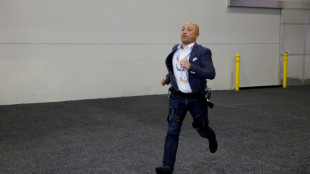
-
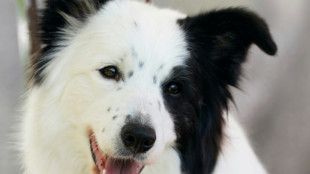 Rare genius dogs learn vocabulary by eavesdropping: study
Rare genius dogs learn vocabulary by eavesdropping: study
-
EU orders Musk's Grok AI to keep data after nudes outcry
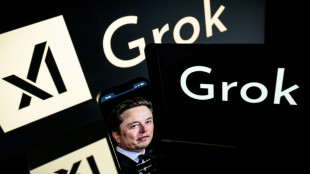
-
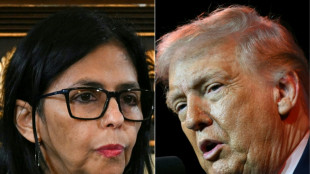 Venezuela announces release of 'large number' of prisoners
Venezuela announces release of 'large number' of prisoners
-
Rare gorilla twins born in conflict-hit DR Congo nature park
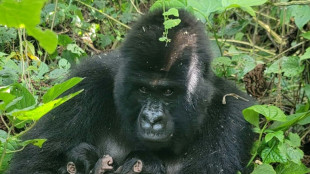
-
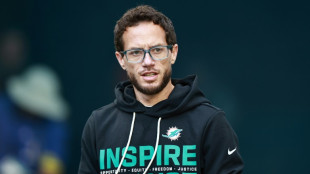 Dolphins fire head coach McDaniel after four seasons
Dolphins fire head coach McDaniel after four seasons
-
Three ships head to US with Venezuela oil as capacity concerns grow
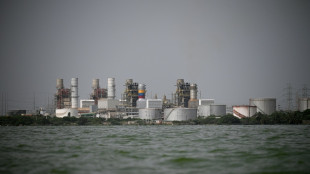
-
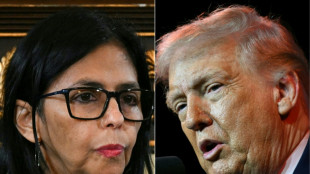 Trump says US could run Venezuela and its oil for years
Trump says US could run Venezuela and its oil for years
-
Heavy wind, rain, snow to batter Europe
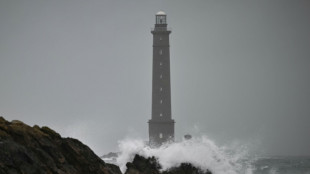
-
 Morocco coach Regragui aims to shift pressure to Cameroon before AFCON clash
Morocco coach Regragui aims to shift pressure to Cameroon before AFCON clash
-
HRW warns right to protest 'under attack' in UK
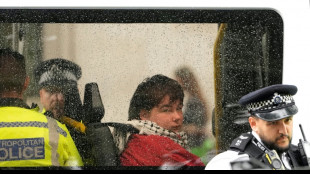
-
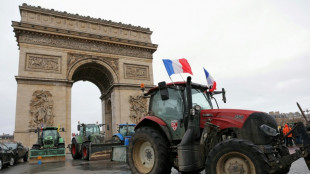 French farmers rage against EU-Mercosur trade deal
French farmers rage against EU-Mercosur trade deal
-
Humanoid robots go for knockout in high-tech Vegas fight night
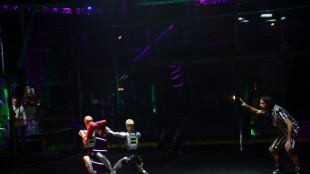
-
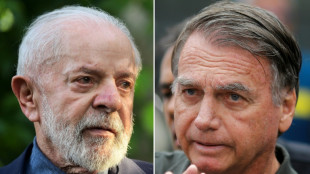 Brazil's Lula vetoes law reducing Bolsonaro's sentence
Brazil's Lula vetoes law reducing Bolsonaro's sentence
-
Macron accuses US of 'turning away' from allies, breaking rules
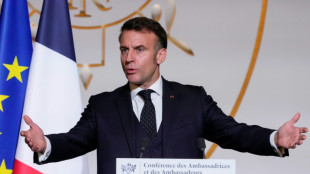
-
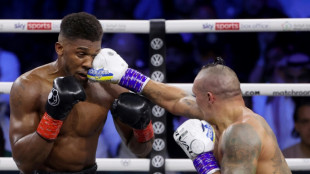 Joshua pays tribute to close friends killed in crash
Joshua pays tribute to close friends killed in crash
-
Protesters, US law enforcement clash after immigration officer kills woman

-
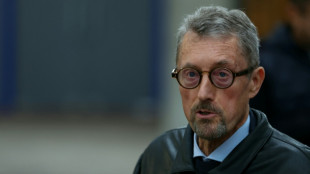 French ex-spy chief cops suspended jail term for 15 mn euro shakedown
French ex-spy chief cops suspended jail term for 15 mn euro shakedown
-
Syria bombs Kurdish areas in city of Aleppo

-
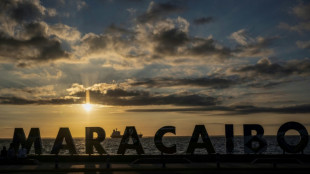 Confusion reigns over Venezuela's oil industry as US looms
Confusion reigns over Venezuela's oil industry as US looms
-
Stocks retrench as traders eye geopolitics, US jobs data
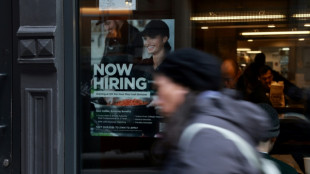
-
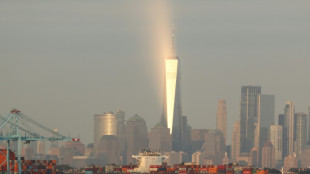 US trade gap shrinks to smallest since 2009 as imports fall
US trade gap shrinks to smallest since 2009 as imports fall
-
Russia releases French researcher in prisoner exchange
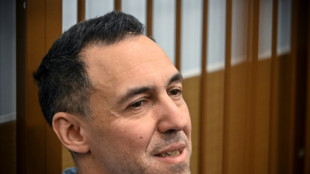
-
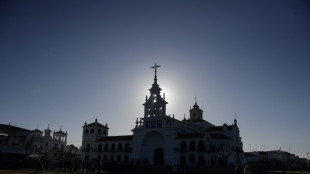 Spain signs agreement with Church to compensate abuse victims
Spain signs agreement with Church to compensate abuse victims
-
Macron accuses US of 'breaking free from international rules'
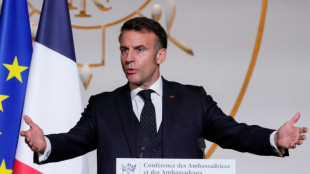
-
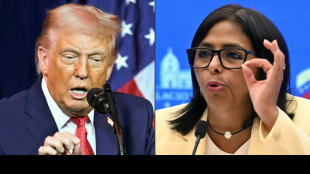 US could run Venezuela, tap its oil for years, Trump says
US could run Venezuela, tap its oil for years, Trump says
-
England to stick with Stokes and McCullum despite Ashes flop
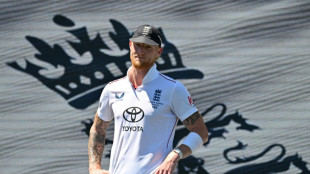
-
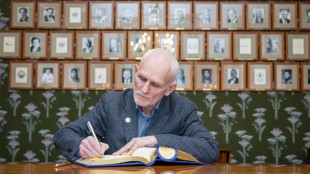 Nobel laureate Bialiatski tells AFP 'important' to keep pressure on Belarus
Nobel laureate Bialiatski tells AFP 'important' to keep pressure on Belarus
-
Russia slams Western peacekeeping plan for Ukraine
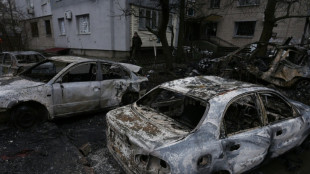
-
 Bordeaux's Du Preez wary of Northampton's Champions Cup revenge mission
Bordeaux's Du Preez wary of Northampton's Champions Cup revenge mission
-
Romero apologises for Spurs slump as crisis deepens
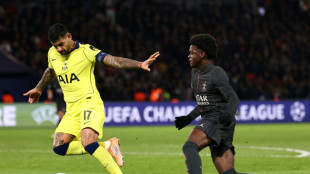

Treasured trash: UK waste gets new lease of life
From facial scrubs using coffee grounds to clothes made from plastic bottles and furniture decorated with agave fibres, efforts to upcycle or repurpose waste products are gaining traction in Britain.
Every day a bike courier for the skincare brand Upcircle visits 25 cafes in London and collects some 100 kg (220 pounds) of coffee grounds that would otherwise be thrown away.
Set up six years ago by Anna Brightman and her brother Will Brightman, Upcircle reuses the coffee grounds to make beauty products, adding ingredients such as camomile infusions or a powder made from olive stones.
The siblings took the plunge to set up their own business after working for multinational companies.
"I wanted to do something that was closer to my heart," Anna Brightman told AFP.
"It was my brother who had the initial inspiration when asking out of curiosity at the coffee shop where he was going every day what happened to the coffee grounds," she said.
"He was shocked to learn the coffee was disposed of at a landfill and they had to pay on top for it."
She joked that she and her brother have since "made a name (for themselves) as the crazy siblings collecting coffee around London and making cosmetics".
Once the coffee collections got going, "people started to contact us with all types of by-products," Anna said, noting more than 15 of them are now incorporated into their range.
Among these are water from making concentrated fruit juices, fading flowers that get thrown away by florists and leftover chai spices.
- 'Not gross' -
Upcircle pay for some of these ingredients, though the coffee grounds, for example, are free. But the logistics involved in collecting them can be complex and costly.
Every year, half a million tonnes of coffee grounds are thrown away in the UK and the firm claims to have recycled 400 tonnes to date.
Nevertheless, the idea of marketing a beauty product made from "trash" initially got a thumbs-down from industry insiders, Anna Brightman admitted.
She said they have to work to get the message across that "these ingredients we are working with are not gross, old or unclean".
Younger people are "more open to the idea of the circular economy", she added.
"For obvious reasons, they are concerned about the future of our planet".
Used coffee grounds work better as a skin care ingredient than dry ones, said Barbara Scott-Atkinson, the formulator for Upcircle's products.
"It's been heated and it's damp. This makes it more suitable to use than plain ground coffee and the level of antioxidants increases."
The company sends the ingredients for repurposing at its factory in Bridport on the southwest coast of England.
The smell of citrus essential oils wafts through the factory as they are being used to make a scrub.
The production process is simple: coffee grounds are mixed with sugar and essential oils, then whipped shea butter and a natural preservative is added.
The exfoliant is then poured into glass jars, 3,000 of which are distributed around the UK every week.
Demand is growing rapidly, particularly in the United States, according to the company, which is reluctant to give figures on its sales or growth.
The burgeoning interest in repurposing food waste puts Upcircle in competition with other brands of natural cosmetics, such as Britain's Wildefruit or Australia's Frank Body, or even the UK giant Body Shop.
- 'Put in landfill'-
As a result, coffee grounds are starting to become sought-after, Anna Brightman said.
"Some cafes tell us they... would like if we could split the week: they get the coffee waste Monday and Tuesday, and us the rest of the week," she added.
To combat ravaging the planet's resources, entrepreneurs and designers are increasingly coming up with new ways to create value from waste.
An exhibition called "Waste Age" at London's Design Museum (until February 20) showcases the use of agave, or sisal fibres, by Mexican designer Fernando Laposse, who studied at London's Central St Martin art school.
Laposse turns the natural fibres of the plant -- used to make tequila -- into avant-garde furniture such as tables, benches and hammocks.
He also uses colourful corncobs from his country of birth to make furniture and veneer, helping boost the "circular economy" and create jobs.
"In the UK, we recycle 15 percent of our waste, the rest is incinerated or put in landfill", said the exhibition's curator Gemma Curtin.
The Design Museum exhibition also shows chairs made from old fridges, baskets decorated with fishnets recovered from the ocean and creations by fashion designers, such as Stella McCartney and Phoebe English, who use recycling.
Curtin added this prompts visitors to question what is really "luxury"?
The exhibition's final room shows furniture and building blocks made of takeaway coffee cups. In Britain alone, 2.5 billion of these are thrown away each year, with their thin plastic coating making them impossible to recycle.
The huge amounts of plastics being made and then thrown away globally have prompted scientists to call for urgent production caps.
The United Nations will hold a meeting on tackling plastic pollution in Nairobi later this month, a potential prelude to talks on a worldwide plastics treaty.
A.Jones--AMWN
